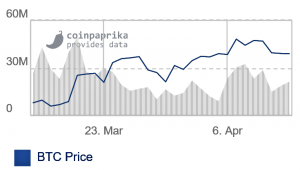Huobi Korea Searches for New Investors As It Aims At The ‘Big Three’
Huobi Korea says it wants to attract series B investment partners as it looks to expand its presence in South Korea.

Per iNews24, the trading platform – which is hoping to become the first non-domestic challenger to break the dominance of the “big three” local exchanges (Bithumb, Upbit, and Coinone) – is currently preparing to apply for the information security management system (ISMS) and security certification required in order to register as a virtual asset provider (VASP) under recently-passed legislation.
However, the company says that its series B funding call is not a bid to raise funds, per se. Instead, Huobi Korea says it is on the lookout for “a strategic partner” that will help it “enhance the development and diversification of Huobi Korea’s trading products and upgrade existing services.”
The same media outlet quotes Huobi Korea’s CEO Cho Kook-bong as stating,
“[The series B investment] will help us to further strengthen Huobi Korea’s position as a South Korean exchange and conduct a range of business activities that will lead to qualitative and quantitative growth in the South Korean blockchain industry.”
Huobi opened its South Korean exchange in March 2018, and later became one of the first platforms in the country to obtain ISO27001 information protection certification.
However, even with a healthy investment injection, the company still faces an uphill battle in its quest to break the hold the “big three” has on the domestic crypto scene.
The 24-hour trading volume on Huobi Korea stands at USD 16.7 million (09:24 UTC). It’s almost 6 times more than on Korbit, but around 50% less than on Coinone. Trading volumes on Bithumb and Upbit reached around USD 90 million in the past 24 hours.
Trading volume on Huobi Korea:

At present only Bithumb, Upbit, Korbit, and Coinone have real-name banking deals in place with leading commercial banks. The new legislation, which comes into force in spring next year, will require all VASPs to abide by real-name banking protocols.




